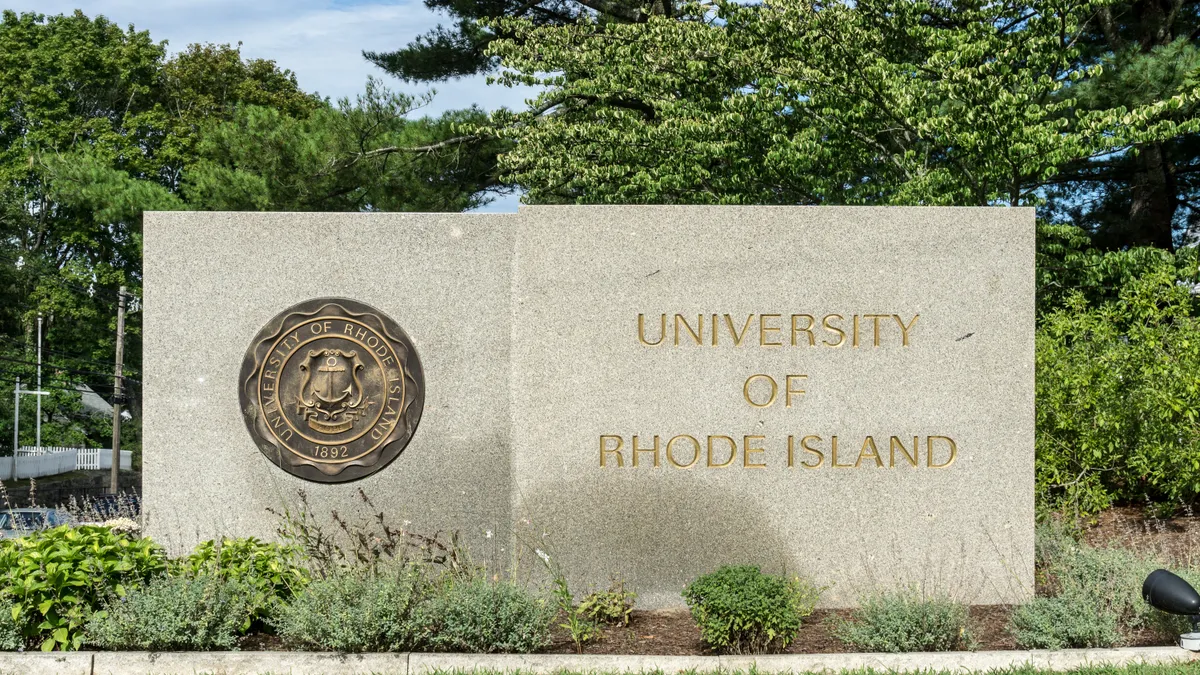Dive Brief:
- The University of Rhode Island plans to add three new "innovation" campuses designed to support the commercialization of academic research and spur local industry. The effort is supported by $12 million in public spending and expected to draw $122 million in private investment.
- The campuses were chosen based on a statewide competition that drew 16 submissions, and they link the university to other higher education institutions as well as industry groups. Another round of funding from a $20 million bond approved in 2016 is expected this year.
- The university will partner with Arizona State University on one of the campuses. That $11 million effort will focus on cybersecurity, big data and the internet of things via research, commercialization, community outreach and workforce development. A combined business incubator and accelerator is also expected, along with an agriculture-focused innovation and entrepreneurship hub.
Dive Insight:
A 2016 report from the Brookings Institution commissioned by the state of Rhode Island pointed to several factors causing its economy to struggle in the aftermath of the Great Recession. Namely, the decline of its traditional manufacturing economy and the "too-slow emergence" of new industries. And despite the strong research base provided by higher education in the state, the report found its ability to commercialize that research was lacking.
To compensate, it called for more higher ed and industry partnerships, specifically "industry-university-laboratory tech collaboration centers." Rhode Island Gov. Gina Raimondo campaigned on that premise, too, with comparisons made to the International Center for Automotive Research at Clemson University, according to WPRI — a $250 million effort that includes $95.5 million in government funding and $55.8 million in private sector support.
U of Rhode Island's plan to build a trio of innovation campuses is one answer to its broader economic woes. And it mirrors similar efforts by other colleges and universities, where state interventions have allowed for the creation of tech-focused academic and research hubs.
Cornell Tech, on New York City's Roosevelt Island, sought to give science and technology fields more solid footing in the city's economy in response to a prompt (and help) from the city to do as much. The $2 billion, 2 million-square-foot project has so far generated hundreds of millions in private investment, along with a 99-year lease and $100 million in construction costs from the city.
Virginia Tech was making plans for its own tech-focused campus ahead of Amazon's announcement that it would locate half of its new, second headquarters in Northern Virginia. Education Dive reported last month the university was already underway with efforts to create an "innovation district" to expand the mostly rural university's presence into urban areas. Amazon's move to bring 25,000 high-paying tech jobs to the area proved to be a catalyst that accelerated the plans, which include $250 million in state funding.
Such "innovation districts," which bring together public and private sector groups to support entrepreneurship and economic development, are making an impact globally and have staying power, according to a separate Brookings report. It lists research universities, along with local governments, major employers and industry-based research parks, among others, as major drivers.









